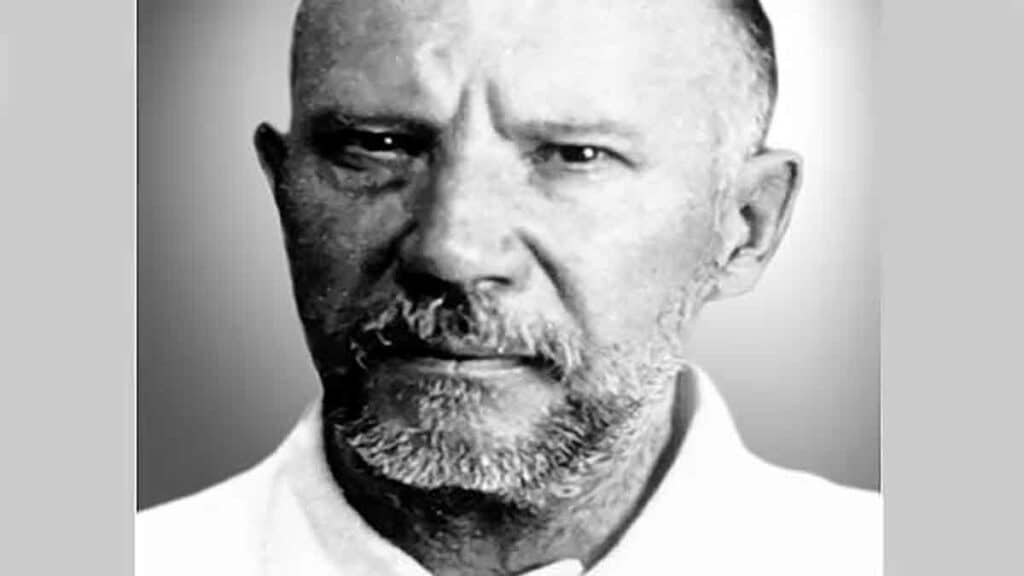He is called a composer and musician from the "shot list". Nikolai Zhilyaev became famous in his short life as a musician, composer, teacher, public figure. During his lifetime, he was recognized as an indisputable authority.
The authorities tried to wipe his work off the face of the earth, and to some extent it succeeded. Until the 80s, only a few knew about the works of Zhilyaev. Nikolaev's professional activities are teaching (composition), textual studies and music editing.
Childhood and youth of Nikolai Zhilyaev
Maestro's date of birth is October 6, 1881. He was born on the territory of Kursk. Almost nothing is known about Nikolai's childhood years. What is clear is that he came from an ordinary family.
From an early age he has been interested in music. As a teenager, Nikolai diligently plays several musical instruments. Giftedness and desire to develop in 1896 brought him to the capital of Russia - Moscow.
For three years, the young man has been taking lessons in harmony, polyphony of a strict style, fugue and musical form from S.I. Taneeva. Zhilyaev was one of the most talented students of the teacher.
He was attracted to improvisation, and therefore he soon engaged in instrumentation under the strict guidance of Konyus. Nikolay could not imagine his life without music. Teachers as one predicted a good musical future for him.
Soon he graduated from the Moscow Conservatory. At the beginning of the new century, he composed the debut Overture, as well as the Scherzo for string quartet. As an examination work, the composer presented the cantata "Samson".
By the way, he combined his studies at the conservatory with teaching. So, he taught music to the son and granddaughter of the Russian writer Leo Tolstoy. Also, the well-known philanthropist Morozova, and the future Marshal of the Soviet Union, M.N. Tukhachevsky, came to his classes.
Works by Nikolai Zhilyaev
When Nikolai Zhilyaev introduced himself as a new acquaintance, he mentioned, among other things, that he was first of all a composer, and only then a musician. The maestro skillfully played the piano and organ.
During his lifetime, he managed to publish only a few pieces of music. Most of the work simply did not reach contemporaries. During his lifetime, admirers of Zhilyaev's work were able to enjoy the pieces that he composed for piano and violin, for voice and piano.
The composer's work was significantly influenced by the foreign maestro Grieg. To get acquainted with his idol, Nikolai specially went to Norway. He managed to visit the composer. The trip resulted not only in a pleasant acquaintance, but also in the study of the Norwegian language.
After arriving from Norway, he took on the creative pseudonym Peer Gynt. Most likely, the fact of passionate love for Grieg's compositions influenced the decision to take such a name for himself. With this name he signed his own articles. For some time, Nikolai worked in a local newspaper, reviewing the works of Soviet composers. Zhilyaev improved his knowledge throughout his life. He was a deeply educated person and knew 5 languages.
For several years he served as a music critic in the well-known Russian publication Golden Fleece. After some time, he published expert articles in the magazine "Moscow Weekly" and "Music".
Nikolai Zhilyaev was an expert on notographic notes. His articles were published in the journals "To New Shores", "Modern Music", "Musical Nov" and others. With his expert opinion, he "walked" through the compositions of his compatriots. He adored the work of Prokofiev, Shostakovich, Alexandrov, Scriabin.
During this period of time he travels a lot. Zhilyaev visited not only many cities of his state, but also visited Austria, Germany, Norway. The authorities did not appreciate Nikolai's desire to study the world.

Nikolai Zhilyaev: admission to the position of bibliographer at Tukhachevsky's headquarters
In 1911 he became part of the "Music and Theoretical Library" community. Zhilyaev - closely cooperates with the composer Scriabin. He helps him edit some of the pieces. Anticipating his imminent death, Alexander decided to entrust part of the work to Nikolai.
A close acquaintance with Scriabin allowed him to often visit the composer's Moscow house. He visited Alexander at his dacha and was one of the first to listen to the late sonatas of the composition performed by the author.
During the Civil War, he worked at the headquarters of M. N. Tukhachevsky, taking the position of a bibliographer. Later, he will fully pay for having some kind of connection with Mikhail Nikolaevich.
From the mid-30s of the last century, he began to communicate closely with Shostakovich. The close relationship between the composers was inextricably linked with the name of the aforementioned Tukhachevsky, whose friendship became fatal for Nikolai.
Editorial work - occupied the lion's share of Nikolai's working time. He was a member of the editorial board of the Gosizdat sector. He is listed as the author of transcriptions for piano Allegro by A. Scriabin (the work was published at the end of the 20s under the title Symphonic Poem for Orchestra). In addition, he published C. Debussy's Symphony (1933), which he composed in his youth.
Zhilyaev is the author of many books on the history of music. It is impossible not to mention his most popular work, which he wrote with N.A. Metlov. It's about the "Music Reader".
In the mid-20s of the last century, he was appointed teacher at the Moscow Conservatory. He gave the educational institution more than 10 years. It is important to note that Nikolai taught theoretical courses for student composers. After some time, Zhilyaev will teach only free composition.
Nikolai Zhilyaev: arrest of the composer
Once the musician came to Nina Fedorovna Teplinskaya, who at that time held the position of the library director. He asked to keep some records. At that time, many composers and musicians who were afraid to keep manuscripts at home did this. The maestro believed that the library is the only place where the records will remain safe. He promised Teplinskaya to return soon ... but that was their last meeting.
In early November, he was arrested by the People's Commissariat for Internal Affairs of the Soviet Union. Nicholas was accused of counter-revolutionary activities and espionage. At that time, such accusations were "sewn" to many cultural figures of the USSR. The NKVD confiscated his archive and a huge library - books and music.
He was taken into custody in the "Tukhachevsky case". Nikolai fell into the stream of "hit lists" that entered into the practice of the People's Commissariat for Internal Affairs of the USSR after December 1, 1934 (the murder of S.M. Kirov).
Reference: “The Tukhachevsky Case” is a case on charges of a group of top Soviet military leaders led by Marshal Mikhail Tukhachevsky of organizing a military conspiracy to seize power.
The name of the person who denounced the composer is A.A. Kovalensky - was cut out in the Protest of the Prosecutor General of the USSR in the case of Zhilyaev. A few months later, the one who denounced the musician was also shot.
A year later he was sentenced to death. The sentence was carried out on the day of the sentence. In the 60s of the last century, the case was re-examined. He died on January 20, 1938. At the end of April 1961, Zhilyaev was fully rehabilitated.



